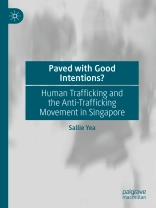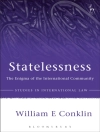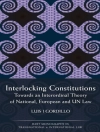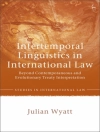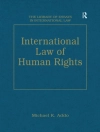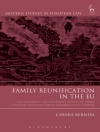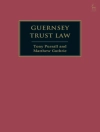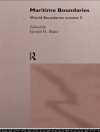This book focuses on human trafficking and the anti-trafficking movement, particularly as it is expressed in Southeast Asia. The study is based on ethnographic research of the emerging anti-trafficking movement in Singapore, and in-depth interviews and observations with victims of human trafficking and others subject to labour exploitation in Singapore. Research in the book adds to the significant amount of work documenting human trafficking in Asia, by offering a critical academic perspective on the rise of the anti-trafficking movement. Readers will gain an understanding of how anti-trafficking operates as a new social movement and state practice, and how anti-trafficking often sits at odds with the experiences of trafficked and exploited persons themselves.
İçerik tablosu
1. Introduction.- 2. The Mobilised Child Victim: The Emergence of a Trafficking Master Narrative.- 3. Girls on Film: Framing Human Trafficking Through Film and the Cinema.- 4. Elastic Victimhood: The State, NGOs and Negotiating the Parameters of Anti-Trafficking.- 5. (In)visible Women and (Anti-) Trafficking.- 6. (Un)identified Men and Labour Exploitation.- 7. Spaces of Deflection and Deportability Beyond Anti-Trafficking.- 8. Discretion and Obfuscation in Exclusions from Anti-Trafficking.- 9. Conclusion.
Yazar hakkında
Sallie Yea gained her Ph D in Human Geography in 2000 from Monash University, Australia. She has held teaching and research positions at universities in New Zealand, Australia, South Korea and Singapore. Currently she is an Honorary Fellow in the Department of Social Inquiry, La Trobe University, Australia. She primarily teaches Human Geography and related Social Science subjects, including race/migration, international development, population geography and political geography. She has published two other books; an edited volume titled
Human Trafficking in Asia; Forcing Issues(2013) and a monograph titled
Trafficking Women in Korea (2015). She has over two dozen published papers and book chapters, including papers in
Political Geography, Environment and Planning D, Gender Place and Culture, and
Antipode.
